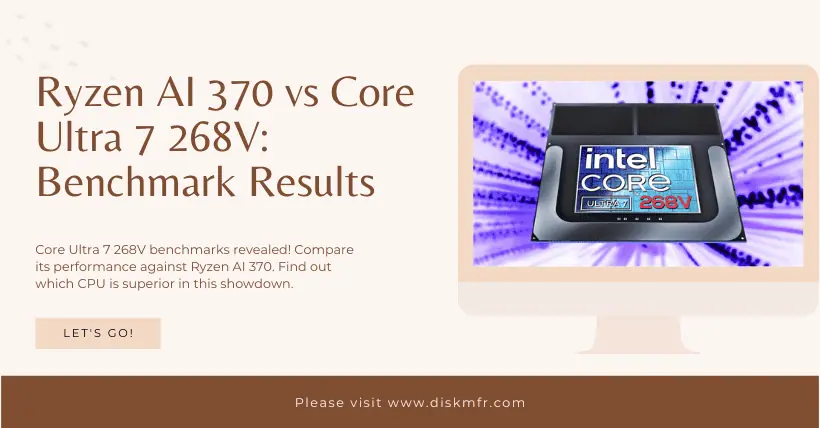On June 18, the Copilot+ PC equipped with the Qualcomm Snapdragon X series processor was officially launched. Additionally, overseas e-commerce platform Best Buy recently began pre-selling several laptops featuring the AMD Ryzen AI 300 series processors, which will be officially released on July 31.
In contrast, Intel’s Lunar Lake series processors will not be released until September, significantly lagging behind. Once the unrivaled leader in the consumer-grade processor field, Intel now finds itself overshadowed by competitors, appearing quite forlorn and awkward.
Despite the significantly delayed commercial progress compared to competitors, as the saying goes, “Good things come to those who wait.” Product launch timing isn’t everything; as long as the processor’s performance far surpasses competitors, a delayed release is acceptable.
So, how does the performance of Intel’s Lunar Lake processor measure up? Recently, the benchmark scores of the Core Ultra 7 268V have been revealed, providing some insight.

Detailed specifications of the Core Ultra 7 268V processor have not yet been disclosed, but the following information is known:
The Core Ultra 7 268V features 4 high-performance cores and 4 efficiency cores, with maximum clock speeds of 5.0 GHz and 4.3 GHz, respectively. It has a 2.5MB L2 cache and a 12MB L3 cache, 32GB of LPDDR5X memory (integrated), NPU AI capabilities of 48 TOPS, a default power consumption of 17W, and peak power consumption of 30W.
Here are the benchmark scores for the Core Ultra 7 268V. Note that multiple versions of the scores are circulating due to various factors, so discrepancies are normal.
On the Geekbench 6.3.0 platform, the Core Ultra 7 268V scored 2739 in single-core and 9907 in multi-core performance.

For comparison, the Core Ultra 7 155H scored 2356 in single-core and 11926 in multi-core performance, approximately 16.3% higher in single-core performance.
The multi-core performance is 19% lower, attributed to Intel removing hyper-threading technology in the Lunar Lake processors to improve power efficiency and reduce consumption.
The Core Ultra 7 268V has 4 high-performance and 4 efficiency cores, while the Core Ultra 7 155H has 6 high-performance cores, 8 efficiency cores, and 2 low-power high-efficiency cores, totaling 22 threads. Despite this, Intel has employed various methods to enhance processor performance (including efficiency core performance), such as improving the core architecture.
Additionally, many benchmark versions of the Core Ultra 7 268V have been released, with significant variations. In some tests, the Core Ultra 7 268V’s multi-core performance exceeds 10,000.

Therefore, a definitive conclusion on the Core Ultra 7 268V’s multi-core performance cannot be drawn yet; more benchmark information is needed for an objective assessment.
Naturally, the primary concern is how the Core Ultra 7 268V compares to the AMD Ryzen AI 370. The result is crucial.
Unfortunately for Intel, even the lower-tier Ryzen AI 365 suffices against the Core Ultra 7 268V. The Ryzen AI 365 scores 2995 in single-core and 14530 in multi-core performance.

These scores indicate that the Ryzen AI 365 outperforms the Core Ultra 7 268V by approximately 9.3% in single-core and 46.7% in multi-core performance. While the multi-core comparison should be viewed with caution, the single-core performance gap is still significant, and the disparity is likely greater against the Ryzen AI 370.
Please note that these scores come from third-party sources and are not guaranteed to be absolutely accurate, serving only as a reference. More updates and information will be shared promptly, so stay tuned.
Related:
- Core Ultra 9 285K vs i9 14900K: Game Performance Test
- Core Ultra 200S Series Drops Hyper-Threading: Here’s Why
- Qualcomm Faces IP Setback as ARM Withdraws License
- Intel Halts 14nm CPUs: Core i9 12900KS Included
- Core i7 4790K vs i3 14100F: Which CPU is Better for Gaming?
- Best Android Processors Ranked for 2024 Performance

Disclaimer: This article is created by the original author. The content of the article represents their personal opinions. Our reposting is for sharing and discussion purposes only and does not imply our endorsement or agreement. If you have any objections, please get in touch with us through the provided channels.







